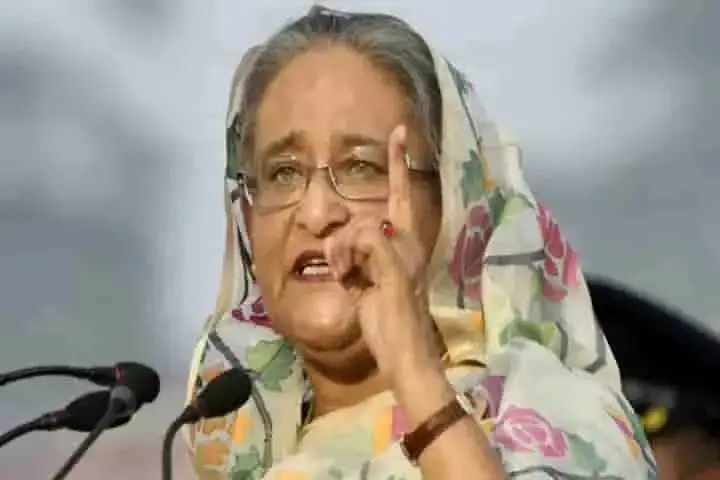For Bangladesh Prime Minister Sheikh Hasina who celebrated her 75th birthday on Tuesday, the year 2021 will remain special as the world over, the country, once described as a basket case by then-US National Security Adviser Henry Kissinger, is now being hailed as an economic success story and a rising super power.
This year also marks Bangladesh’s 50 years of independence and 40 years of Hasina’s homecoming after being in exile for about five years following her father Bangabandhu Sheikh Mujibur Rahman’s brutal assassination.
The years of active politics for Prime Minister—the longest serving in Bangladesh has not been easy. Yet foreign policy observers told India Narrative that she kept her focus steady on economic growth and social and human development and for the last 10 years, the country’s economy has been growing at over 6 per cent. In 2019, it even touched 8.1 per cent.
By 2026, Bangladesh will move out of the United Nations Least Developed Countries (LDC) list.
Bangladesh’s economic growth
In 1971 when Bangladesh was born, the size of its GDP was $6.2 billion. In 2020, the country’s GDP was worth $324.24 billion.
The country has become a case study in economic development that few would have predicted, economist and former chief economic adviser to the finance ministry Kaushik Basu wrote in an article published by Brookings.
While economic growth has been one of the main success stories of Hasina, she has also managed to tame terror and extremist outfits.
“Many countries have succumbed to religious fundamentalism, with disastrous consequences for their economies. Bangladesh is notable for having withstood this danger. Its buoyant, vibrant economy, now with a 50-year track record, is testimony to this success,” Basu wrote.
Hasina’s political journey
On June 23, 1996, Sheikh Hasina became prime minister for the first time. However, thereafter as the BNP Jamaat came to power, serious allegations were charged against Hasina. The BNP Jamaat even carried out a campaign of violence against Awami League activists.
On August 21, 2004, government-backed terrorists attacked an Awami League meeting, killing many Awami League activists, a Dhaka Tribune report said.
In 2008, Hasina became Prime Minister once again as her party Awami league won the elections in a landslide victory. “Domestic and international observers declare the election as a free, fair and credible election,” the report said.
Also read: In message to AfPak, Bangladesh showcases its progressive woman power at the UNGA
As Hasina promises to build a “Golden Bangladesh” or Shonar Bangla, challenges remain.
The country, like most other economies in the world, is still reeling under the ghastly aftereffects of the Covid 19 pandemic-induced economic challenges. Poverty, inequality and religious fundamentalism are some of the issues which need attention.
The World Bank meanwhile said with the right policies and timely action, Bangladesh can accelerate its recovery from the economic downturn and continue to progress towards upper-middle income status.
“While she turns 75 on Tuesday, Sheikh Hasina rests very little as she continues to handle matters of the state throughout her day. She is among the very few government leaders who are seldom, if ever, known to take vacations,” Dhaka Tribune noted.
A prosperous and peaceful Bangladesh with its Muslim Majority population is critical to the world, particularly South Asia and Hasina will play an even bigger role in the coming years.




















